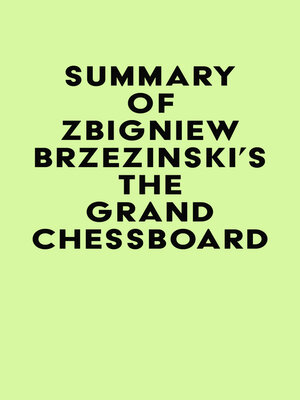
Sign up to save your library
With an OverDrive account, you can save your favorite libraries for at-a-glance information about availability. Find out more about OverDrive accounts.
Find this title in Libby, the library reading app by OverDrive.



Search for a digital library with this title
Title found at these libraries:
| Loading... |
Please note: This is a companion version & not the original book. Book Preview:
#1 The American global leadership that existed during World War II did not produce a long-term American engagement in world affairs. Instead, America quickly retreated into a self-gratifying combination of isolationism and idealism.
#2 The Cold War was a contest between the Soviet Union and the United States to see who could gain control of Eurasia. It was fought largely on the peripheries of Eurasia, with the United States defending its western and eastern Eurasian bridgeheads and the Soviet Union trying to gain control of all of Eurasia.
#3 The final outcome of the Cold War was influenced by cultural considerations. America was widely perceived as a society worthy of admiration and emulation, while Russia was held in cultural contempt by its Central European vassals and even more so by its eastern ally, China.
#4 The United States is the only global power today, and it derives its power from a hierarchy of vassals, tributaries, protectorates, and colonies. The American empire is based on superior organization, the ability to mobilize vast economic and technological resources, and the vague but significant cultural appeal of the American way of life.






